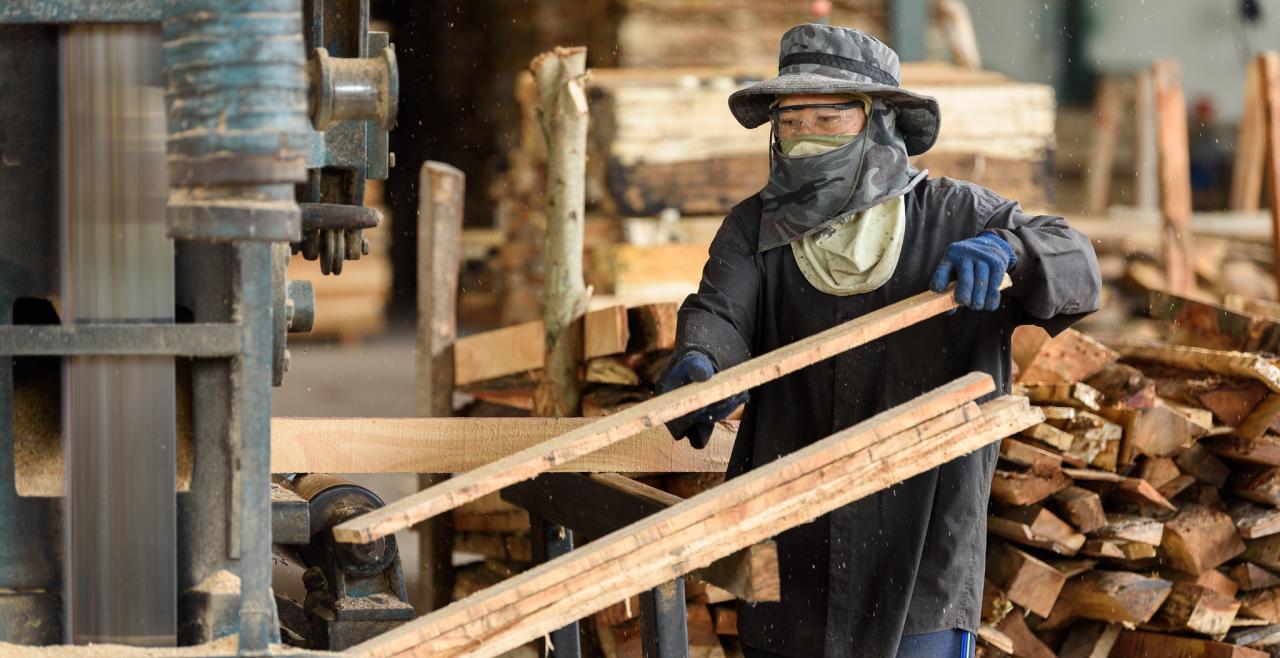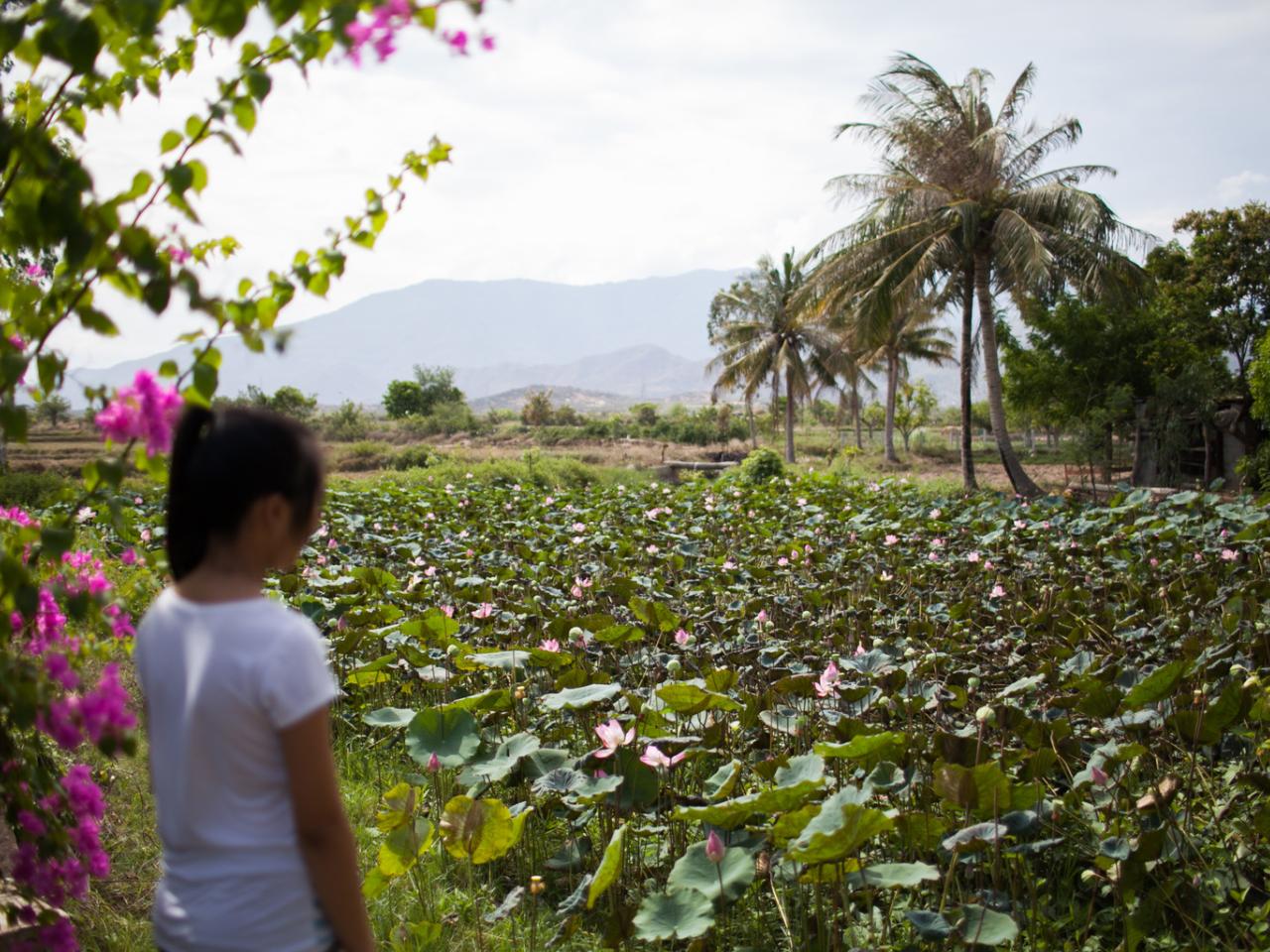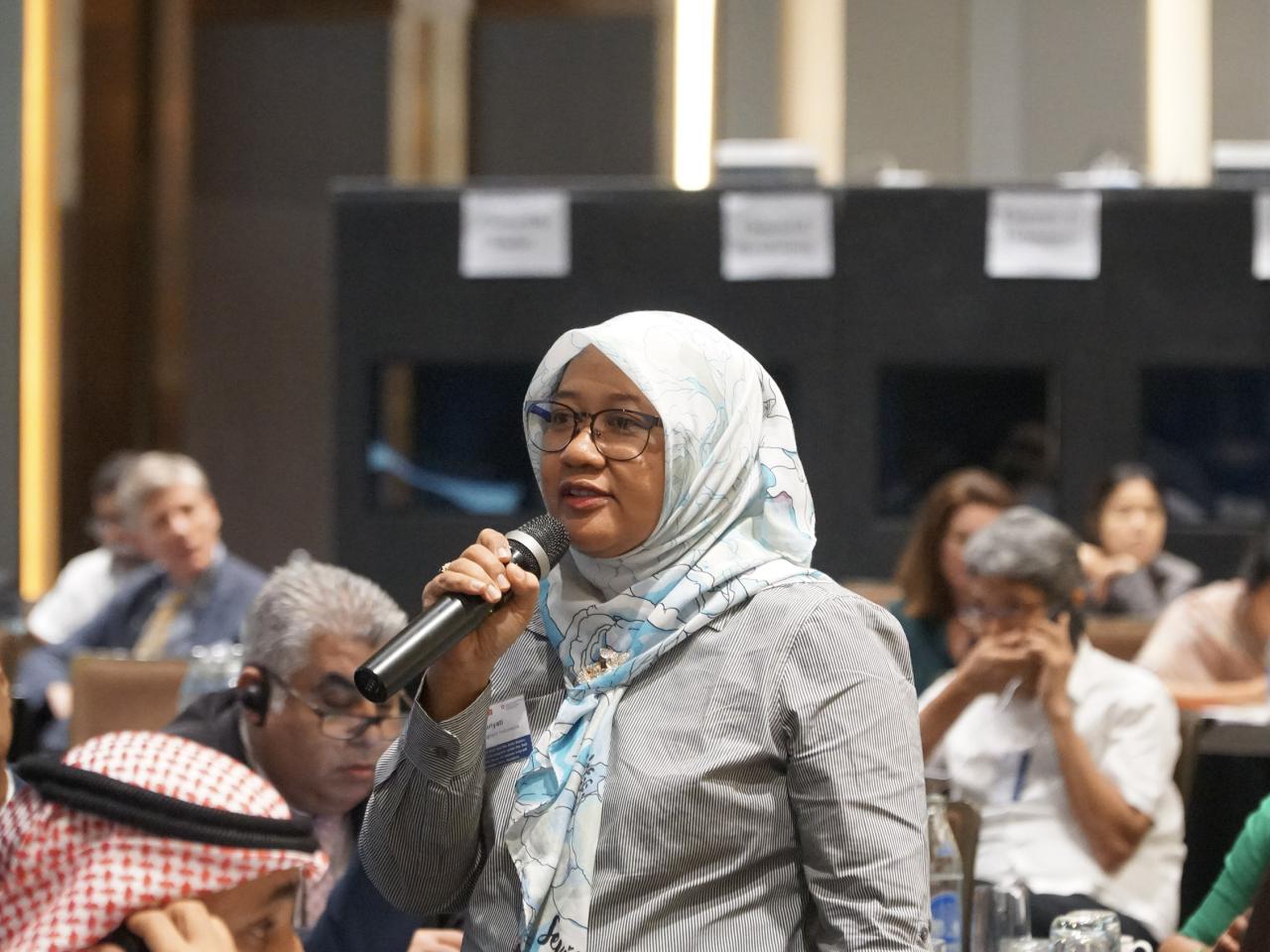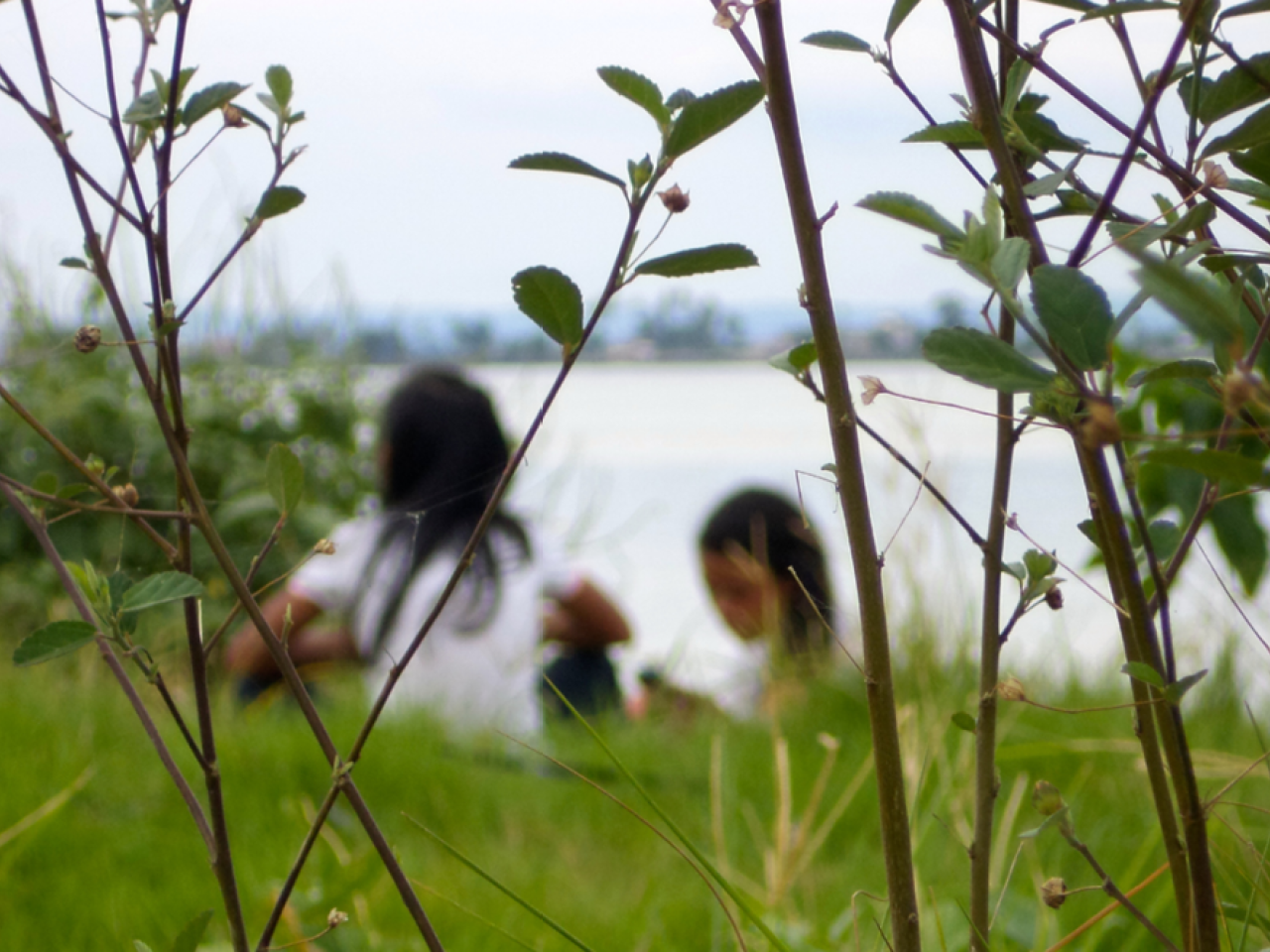Reaching Malaysia’s women migrant workers amid COVID-19 crisis

SEMENYIH, Malaysia - Two weeks after Malaysia introduced a movement control order to slow the spread of Coronavirus disease (COVID-19), women’s rights activist Irene Xavier found herself on the road to Semenyih in south-eastern Selangor. She had received news of migrant workers in the remote sawmills there who needed help, and she and her team rushed to meet them before the country went into full lockdown.
As the Executive Director of Persatuan Sahabat Wanita Selangor (PSWS), a women’s rights organization that works with Spotlight Initiative’s Safe and Fair programme in Malaysia, Ms. Xavier had spent the past fortnight distributing food to those most heavily impacted by the movement control order. Even so, Ms. Xavier was shocked by conditions at the sawmills.
“Only a few of the workers had access to personal protective equipment such as masks and hand sanitizers" - Irene Xavier, women's rights activist
Workers and children lived side by side in the mills surrounded by saws, stacks of logs, sawdust and mud. “Only a few of the workers had access to personal protective equipment (PPE) such as masks and hand sanitizers, which are crucial to preventing COVID-19 infection,” Ms. Xavier says.
“What shook me most was a woman who had given birth in the ‘kongsi’ (workers’ quarters) one week earlier, without the help of a midwife or a medical assistant,” she says. The mother and her newborn had not received any pre-natal or post-natal care. The PSWS team was able to provide the woman with food, but she declined their offer to take her to hospital for medical attention and to have her baby vaccinated. It was only then that Ms. Xavier realized why the woman had not given birth in a hospital – as an undocumented worker, she was afraid to interact with the authorities.
Fortunately, PSWS was able to arrange for a doctor to visit the community and provide free medical check-ups. They also provided pregnancy tests to women at the sawmill.
"Support services for women, including women migrant workers, are needed now more than ever” - Ms. Xavier
Malaysia’s hidden workforce
Malaysia is currently home to two million registered migrant workers, but the number of undocumented workers could be as high as four million. Most of these workers earn daily wages in informal jobs and have been left without an income or food security since the pandemic began – leaving them more vulnerable to violence, exploitation and trafficking.
Providing support to undocumented workers during the pandemic is particularly challenging. They often lack access to PPE and other hygiene products, putting them at risk of contracting COVID-19, and they are less likely to seek access to government-operated support services because of a language barrier or a fear of authority.
“Seeing the increased calls to the helplines during the COVID-19 crisis makes it very clear that support services for women, including women migrant workers, are needed now more than ever,” says Ms. Xavier.
Continuous support during COVID-19 crisis
Spotlight Initiative’s Safe and Fair programme is supporting PSWS’s Migrant Resource Centre, who told Ms. Xavier about the mother at the sawmill. The centre provides migrant workers with information on safe migration and COVID-19 prevention, as well as offering a safe space for migrants to ask questions and seek help when their rights are violated.
The Initiative is working with local organizations to open more migrant resource centres, expand the centres’ services and to help them to adapt to new ways of working during the pandemic.
“Women migrants need to be protected from violence, no matter what their migration status,” says Ms. Xavier.
By Pichit Phromkade. Photo: Pornvit Visitoran/UN Women.



